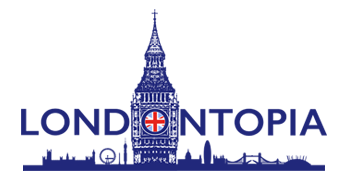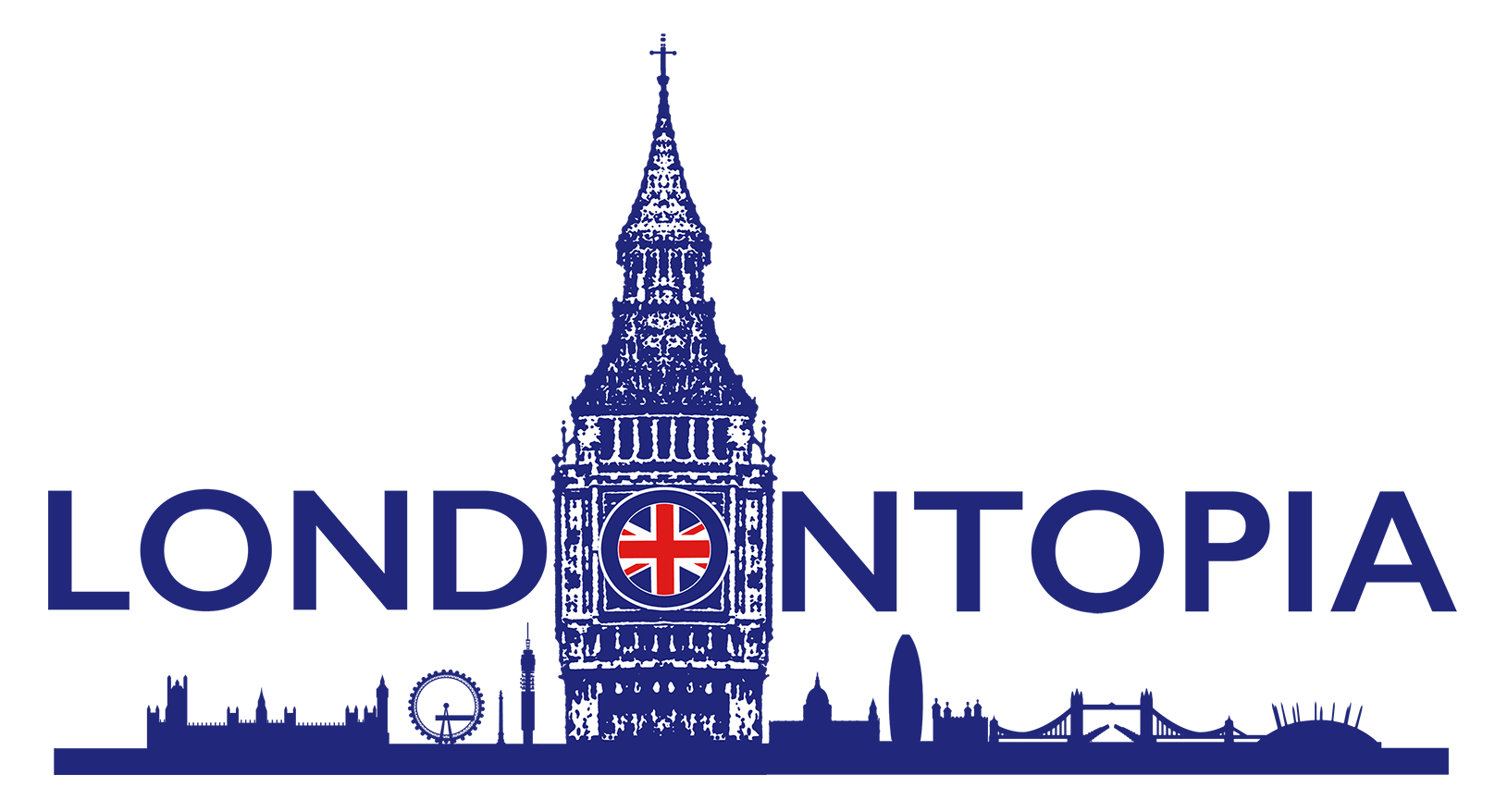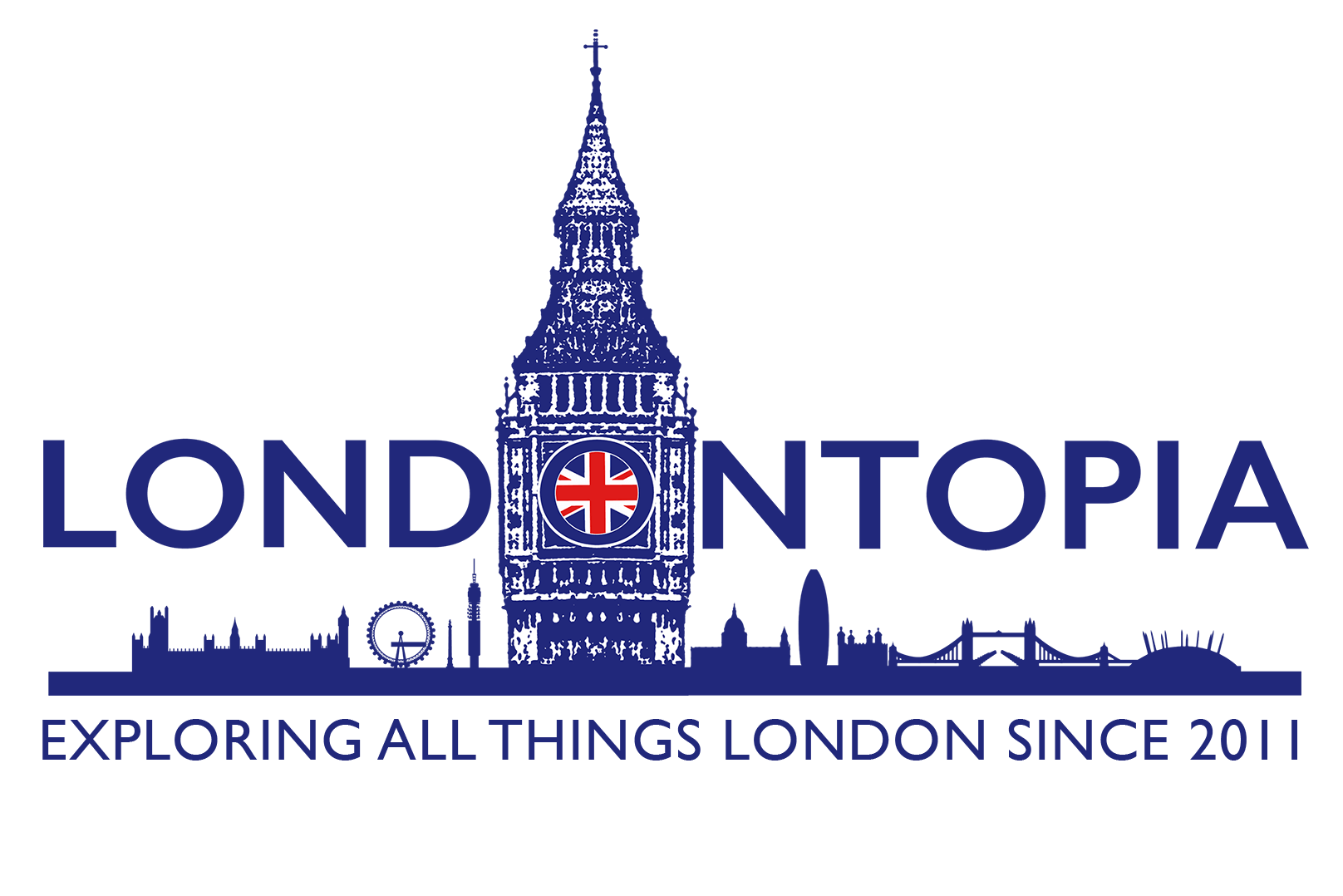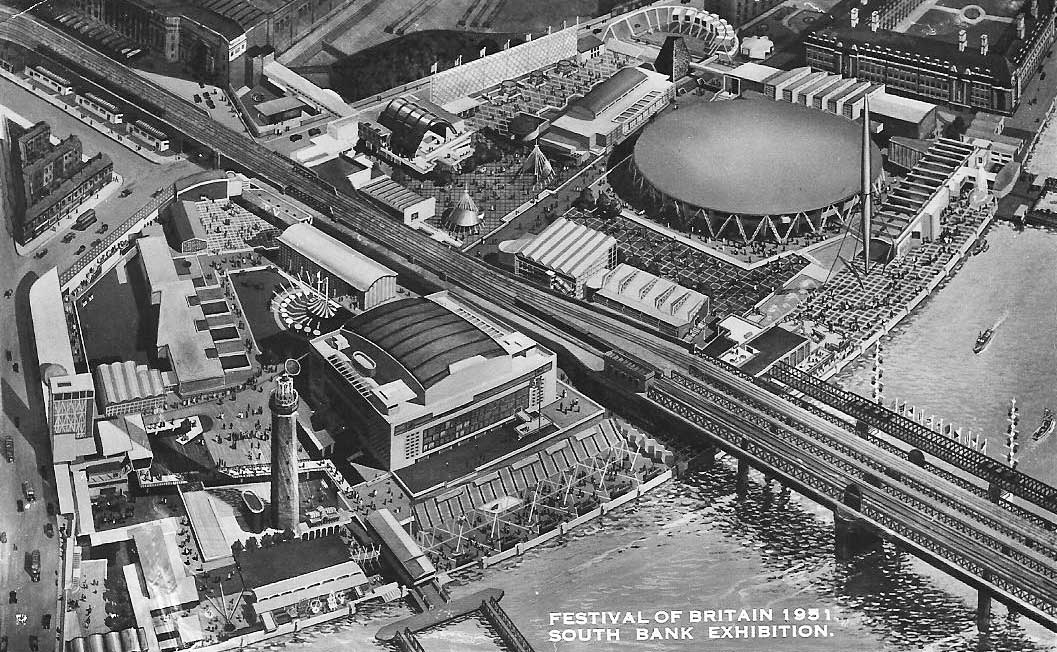Moving on from the 1940s, the 1950s were the start of a new era in modern British history. From the reign of Queen Elizabeth II to the coming of ITV, 1951 to 1960 brought many changes to the city that had lasting effects on its citizens. We have identified ten events, from one of the largest events in the city’s history to one of its largest protests, each one organized by the year in which it occurred. If there’s something you think we left out, you can let us know in the comments.
1951 – Festival of Britain
A centennial celebration of the Great Exhibition of 1851, the Festival of Britain put a spotlight not only on the country’s recovery from the war but London’s as well. From new developments in cinema to the advent of international modernist architecture in the UK, the festival gave hope in a time when it was most needed and gave a glimpse of the London of the future. One of the buildings constructed for the Festival of Britain, the Royal Festival Hall, is still standing.
1952 – The Mousetrap Begins Its West End Run
Based on a radio play that Agatha Christie wrote for Queen Mary, it was adapted for the stage and made its debut in the West End on October 6, 1952. It continued to run until theater operations were suspended by the COVID-19 pandemic on March 16, 2020, making it the longest-running theatrical performance in the world. At over 28,000 performances, it’s more than double that of Phantom of the Opera on Broadway.
1953 – Coronation of Queen Elizabeth II
With the passage of King George VI in 1952, his eldest daughter Elizabeth ascended to the throne and was officially crowned on June 2, 1953. As always, it was the largest event in the city for the year and included the processions from the palace to Westminster Abbey as well as the new Queen greeting the crowd and many many street parties. Historically, it was also the first coronation broadcast on television.
1954 – Cutty Sark Permanently Moored
The last tea clipper ship constructed and quite possibly the fastest ever built, the Cutty Sark, was finally retired in 1952. It was turned over to the Cutty Sark Preservation Society in 1953 and then permanently moored in Greenwich. Today it continues to serve as a museum ship and is one of the area’s greatest attractions.
1955 – First ITV Franchise in London
The Television Act 1954 allowed for non-state-owned television networks to form, the first of which was Independent Television, or ITV, in 1955. The network began with six franchises spread across Britain, including Associated-Rediffusion. Associated-Reddifusion (later rebranded as Reddifusion) became one of the biggest media operations in London in the 1960s, including producing such shows as At Last the 1948 Show and The Frost Report, both of which gave early work to, and inspired, the Monty Python comedy troop.
1956 – Clean Air Act
Four years earlier, London had experienced its worst smog event in the city’s history. This prompted Parliament to pass the Clean Air Act in 1956 to reduce air pollution in London and throughout the United Kingdom. Unfortunately, the act didn’t prevent immediate smog incidents such as the one in 1957, and it took subsequent extensions of the act to actually do something about air quality in the city.
1957 – Lewisham Rail Crash
In one such smog incident, the dense smog caused two trains to crash on the South Eastern Main Line near Lewisham on December 4, 1957. 173 people were injured in the crash, and 90 others died. The Ministry of Transport report found one of the drivers had failed to slow at the caution lights, and he was tried twice for manslaughter but acquitted in both trials.
1958 – Notting Hill Race Riots
After World War II, a great number of Afro-Caribbean immigrants came to London as a result of the British Nationality Act 1948. Working-class whites, in some cases encouraged by far-right groups such as Oswald Mosley’s Union Movement and the White Defence League, began to actively harass black families in the city. On August 30, 1958, a mob of some 300 to 400 whites began attacking the homes of immigrants along Bramley Road in Notting Hill, attacks that continued each night until September 5. Nine white youths were given what were considered severe sentences as a deterrent to others, and, on a lighter note, the riots helped to inspire the Notting Hill Carnival as a celebration of Afro-Caribbean culture.
1959 – LCC Finishes First Part of Alston Estates
Located in Roehampton, Alston Estates was one of the largest post-war housing projects in the city and often considered a model for other estates throughout the UK. Alton East was completed in 1958, while Alton West followed in 1959, finishing the first part of the project.
1960 – Nuclear Arms Protests
The advent of nuclear weapons during World War II and the ever-present threat of the Cold War between the USSR and NATO understandably raised concerns that such weapons could see use in another global conflict. On April 18, 1960, 60,000 people gathered in Trafalgar Square to protest their continued proliferation by the UK, US, USSR, and other nations.
A Little Bit of London In Your Inbox Weekly. Sign-up for our free weekly London newsletter. Sent every Friday with the latest news from London!




